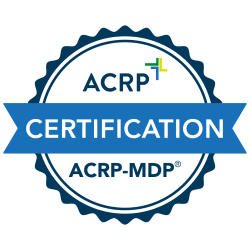Advances in diversity, equity, and inclusion (DEI) demand more than simply offering people from underrepresented populations a seat at the table. “While this is a good starting point, we must also take a close look at what happens at that table,” says Ashley Moultrie, CCRP, Director of DEI and Community Engagement at Javara. “Success depends on what happens next.”
Moultrie explains that “people from marginalized populations must be fully welcome and treated equitably, sharing the same experience as earlier participants in all these discussions. This includes having updates on earlier conversations to enable full participation in current discussions. To make information fully accessible for all participants, a choice of formats should be available—whether verbal, written, or a combination. If device use is required for full participation, then this option should be readily available. These steps can support an equitable experience and an equitable voice in the decision-making process.”
After these initial, inclusive discussions take place, participants should be interviewed about their experience, notes Moultrie. “Honest—and possibly uncomfortable—conversations are needed as part of the assessment of these experiences,” she adds. “Once there is a clear picture of what went well and what did not, progress can be made.”
“We should also focus on training around implicit biases and the benefits of privilege,” asserts Moultrie. “Virtually all of us have some kind of privilege, and we need to do a better job of using this in a powerful and impactful way to move the needle on DEI in our industry. This will result in a more equitable and inclusive environment.”
There is scope for constant improvement in DEI, adds Moultrie. “Anyone wishing to make a difference should seek out training and keep their finger on the pulse of what is helpful and appropriate,” she urges. “For example, one simple way to increase diversity is to start with hiring decisions that support this goal. We should also work with our teams to build the intrinsic motivation that is needed to be truly active participants in creating equitable opportunities and experiences.”
Edited by Jill Dawson




